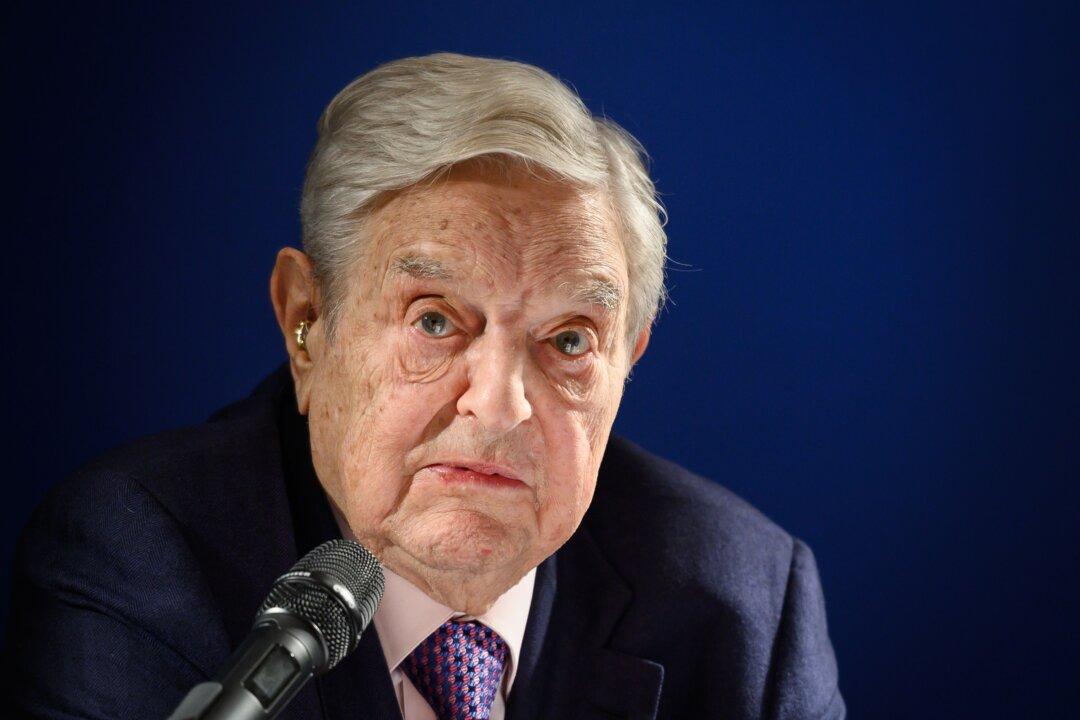George Soros’ foundation, which is now controlled by the billionaire activist’s son, plans to cut 40 percent of its workforce, according to reports and a statement from the Open Society Foundations (OSF)
The board of directors of OSF, which George Soros founded in 1979 and personally led until about a month ago, has approved “significant changes” to the organization’s operating model that require “difficult decisions” and will make the foundation “nimbler,” The Epoch Times has learned.





